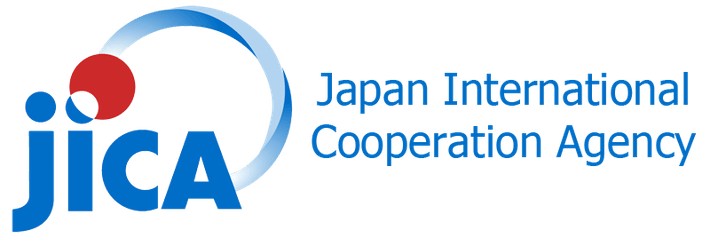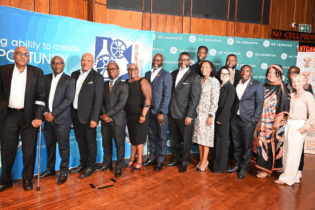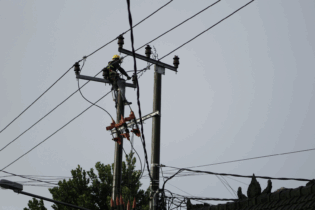Ahead of Nonhlakanipho Tau’s keynote speech at the WISA2024 conference, Water and Sanitation Africa sat down with her to get a better understanding of her work and what to expect from her at the conference.
Nonhlakanipho Tau is the Director of infrastructure assessment and analysis and director of infrastructure assessment and analysis at the Municipal Infrastructure Support Agency (MISA). She is a professional civil engineer who has many years of working in the management of infrastructure in the public sector and state-owned entities. Her current interest lies in research on aligning governance and service delivery through utilising quantifiable data in decision-making.

Nonhlakanipho Tau
You participated in UNESCO and Japanese International Corporation Agency programs under African business education, what do you think South Africa can learn from Japan?
“Firstly, Japan and South Africa are more similar than we tend to think. I was mostly in Kyoto, a more rural side of Japan and this idea of a single highly developed Japan is just not true. They too have urbanised and rural areas with different needs. What Japan does, something I think we need to consider for the South African context, is they tend to simplify their approach. They look at problems and go for a solution. Another ideal Japan holds is to invest in innovation early on. If you look at their disaster management programs they have identified potential risks and invested in them before problems even present. South Africa can learn from this, simplify approaches and invest early.
Conversely, what can Japan learn from South Africa?
“Again, these countries are more similar than one tends to think. Japan uses centralised approaches, and this could lead to some incongruity in their different populations, namely the rural and the urbanised. South Africa uses decentralised approaches to water and sanitation and often involves the community in their plans and processes. Japan could use this approach when implementing infrastructure initiatives in remote areas where the community may not want the industrialisation found in major cities.”

Ms Tau previously worked in conjunction with the Japanese International Corporation Agency
You are presenting a research paper titled “ Moving from “Best-Effort” Support Approach to a structured and responsive municipal support evaluation approach.” Could you tell us what are the problems with this current “best effort” approach and why moving to a structured approach would be beneficial?
“I will bring in my experience as a runner to answer. When I am training for my comrades, some days are harder than others. One day my coach gave me the training outline and I replied, “I will give my best effort” and my coach said, “No, you need to do what is required.” The idea of a “best effort” is based on compromise, you are doing something knowing you are not meeting the expectations. When it comes to the infrastructure we get into a deeper question, can we quantify what a “best effort” is, or is there a standardised “best effort” response? What we see is that even in situations where there is good work, the outcomes are not specified or monitored. What we are seeing at MISA is that many projects are planned well, and then executed but there is little follow-up on what impact the projects have. So we are putting our best effort into something with no actionable or defined monitoring processes. We need to start setting up frameworks and monitoring guidelines that give us usable feedback that we can then use to make adjustments or interventions rather than rely on a vague notion of “best effort” support. This also allows for better accountability. With the many different, and undefined “best efforts” happening throughout the country it would be better to implement a “nerve centre” that can monitor our efforts, and keep track of what has been done, what needs to be done, and what can be done. Standardising or implementing a framework can lead to better results because if something works we can evaluate it, or if it doesn’t work we can understand why, rather than relying on a vague notion of a “best effort”. Using data to drive efforts improves efficiency, and improves outcomes. When we do a “best effort” we are hoping for the best, when using a structured approach we know what we want from the outcome. Data also drives prioritisation which can help with timelines and urgency. There is a lot that we can gain from changing our approach, and all of that helps the people who are doing the work as well as those who benefit from the work.”
What are your thoughts on the WISA2024 theme “Turn the Tide”?
“I see communities are feeling unheard, and we need to figure out the best way to get South Africans happy with their water and sanitation. This goes back to better governance, better implementation of plans, more accountability and our ability to meet problems as they arise. We need to look at our approaches, and figure out the best way forward.”
Why is water important?
“The textbook response, and perhaps the best response is “water is life, sanitation is dignity” but what I have to say is that water means something different to different people. When I grew up in Northern KZN I had to fetch water, as tap water was not available in my house, if we compare this to a person who has tap water in their house or a business that uses vast amounts of water in their day to day, we can’t say that water holds the same meaning for everyone. We can say that water is as vital and important to everyone despite its different meanings.”
What do you think is the best way forward for the water sector in South Africa?
“We have a lot of planners and plans. We need the enablers, we need action and actionable goals.”









